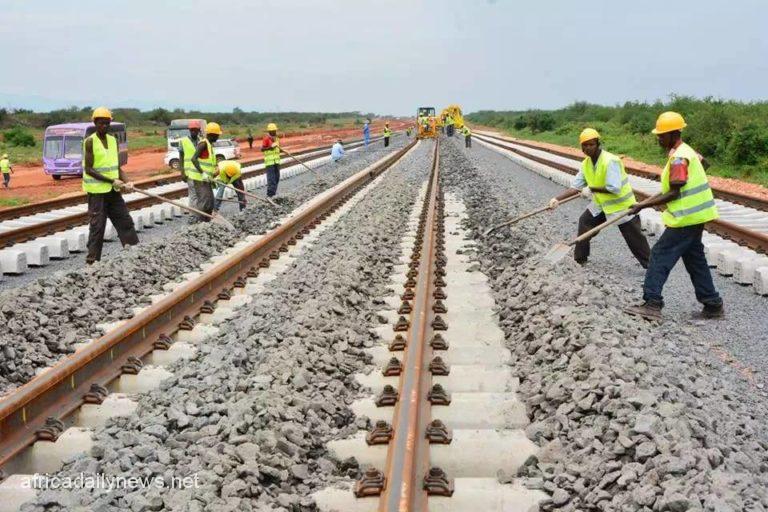The Federal Government of Nigeria has threatened to impose serious sanctions on a Chinese construction firm, China Civil Engineering Construction Corporation, over its alleged failure to meet up with the contract of providing 85 percent of rail project cost.
The Minister of Transportation, Mu’azu Sambo, made this known on Saturday in Lagos during the inspection of the Lekki Deep Seaport.
According to Sambo, the projects are the Kano-Kaduna and the Maiduguri-Port Harcourt rail lines.
The minister said he gave the construction firm till October 30th to comply.
“The CCECC has not brought anything to the table, I gave them a deadline which is Oct. 30, if I don’t get that money on the ground, I know what to advise Mr President to do,” he said.
Read Also: Rail Lines: Nigerians Would Have Been Trekking –Buhari
Sambo who expressed satisfaction with the Lekki Deep Seaport project, noted that initiatives were on ground to ensure the smooth evacuation of cargo at the port.
He said that in the meantime, the road was being expanded, adding that the government was looking into it, and for the medium-term, barges would take care of it.
“I am impressed and happy to be back here. This we know is the pride of all Nigerians, the first deep sea port in West Africa that will take the largest ship in the world, have 16.5 meters deep and will give us hundreds and thousands of jobs. Almost automated not fully but automated enough to make life easy for port operations”
“It is initiatives like this we want to encourage. That is why I did not hesitate when I came to the ministry and I saw a proposal of the Badagry Deep Seaport sitting on my table and took it immediately for approval.”
“Also, the President is concerned about cargo evacuation at the port and does not want a repeat of the Apapa and TinCan port and so we cannot rely on the road alone which is not the best option.
“There is a need to sit down with stakeholders to see how to tackle this,” he said.
He pointed out that cargo evacuation was not just within the port but outside the port, as goods must reach its final destination.
“First of all, you save a lot of time at the port because of automation and modern technology and equipment.
“After the port what happens, it only makes sense when the goods get to the shipper or owner. And to do that, you need to move either by rail, water, or road,” he said.
Sambo urged the management of the port to employ as many Nigerians as possible as this was the only way citizens could put food on the table for their families.
Earlier, the Managing Director, Nigerian Ports Authority, Mohammed Bello-Koko, noted that the Lekki Deep Seaport was one of the first solutions to reducing traffic at Apapa and TinCan.
According to Bello-Koko, the automation deployed at the port is commendable and fantastic as the processes will be free of human interference.
He said that the Apapa and TinCan port would still be viable, adding that what they had done was to create alternatives for importers and exporters as to where they would decide to do business.










